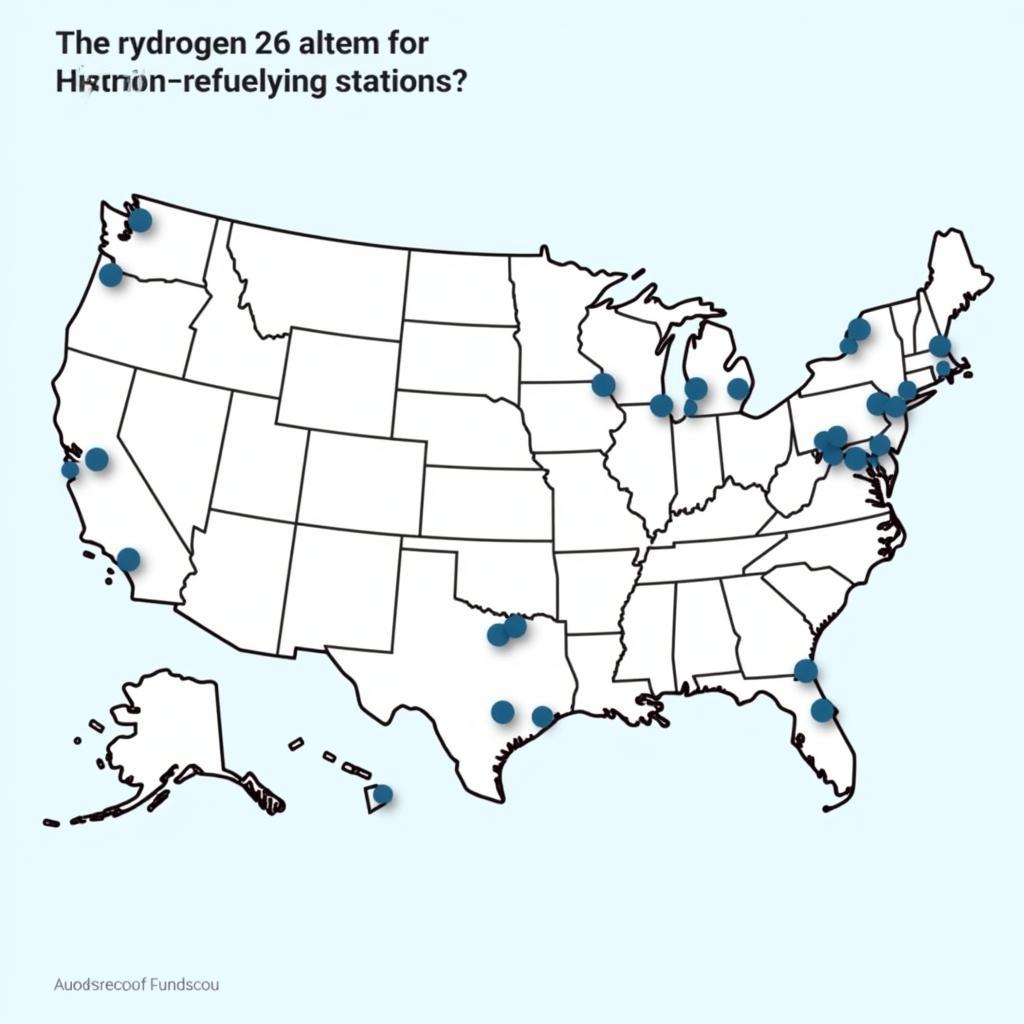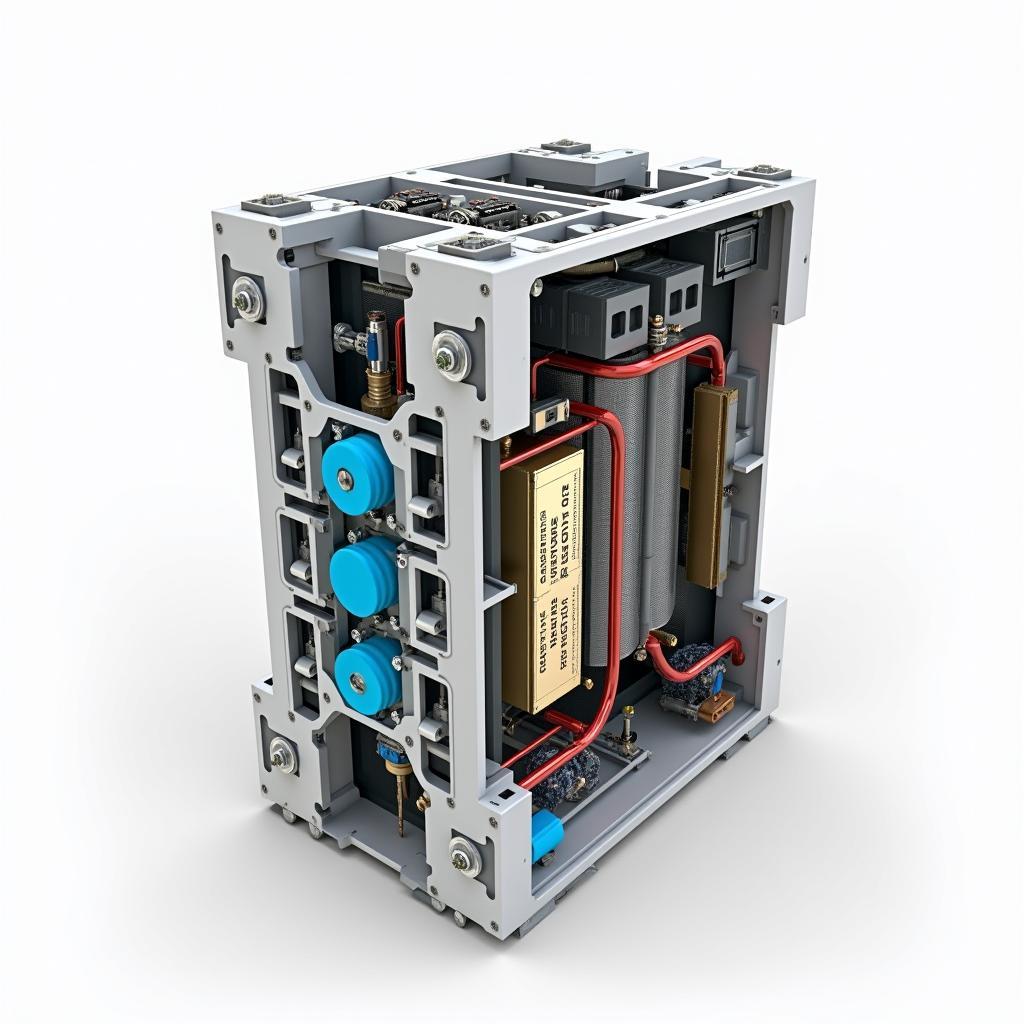Hydrogen cars, touted as the future of clean transportation, are still facing some hurdles. This guide delves into the common Hydrogen Car Problems, offering solutions and insights for owners, mechanics, and technicians.
While hydrogen fuel cell vehicles offer the promise of zero tailpipe emissions and long driving ranges, they are not without their challenges. One key issue is the limited availability of hydrogen refueling stations, creating a “chicken and egg” scenario. This makes long-distance travel difficult and limits the practical use of these vehicles. Furthermore, the production of hydrogen itself can be energy-intensive, depending on the method used. We’ll explore these and other challenges in detail below. For problems related to more conventional vehicles, have a look at car exhaust problems symptoms.
Hydrogen Refueling Infrastructure: A Major Bottleneck
Perhaps the biggest obstacle for hydrogen cars is the lack of a widespread refueling network. Unlike gasoline stations, hydrogen refueling stations are few and far between. This limits the range of these vehicles and makes long trips impractical. The cost of building and maintaining these stations is also a significant barrier. This infrastructure gap needs to be addressed for hydrogen cars to become truly mainstream. Think about it – would you buy a car if you couldn’t easily refuel it?
 Hydrogen Refueling Station Scarcity Problem
Hydrogen Refueling Station Scarcity Problem
Hydrogen Production and Storage: Addressing Efficiency and Safety
While hydrogen is abundant, producing it in a clean and sustainable way is still a challenge. Most hydrogen is currently produced from natural gas, a fossil fuel. This process releases greenhouse gases, negating the environmental benefits of using hydrogen cars. Furthermore, storing hydrogen safely and efficiently on board a vehicle requires specialized high-pressure tanks, which add to the vehicle’s cost and complexity.
 Hydrogen Fuel Cell Cost and Complexity
Hydrogen Fuel Cell Cost and Complexity
Safety Concerns surrounding Hydrogen Storage
Safety is another concern. Hydrogen is highly flammable and requires robust storage systems to prevent leaks and explosions. Although hydrogen car manufacturers have implemented rigorous safety measures, public perception of hydrogen safety remains a challenge. Addressing these concerns through education and demonstrating the safety of these vehicles is crucial for wider adoption. For perspective on other car-related issues, see can a car accident cause heart problems.
Cost of Hydrogen Fuel Cell Vehicles: Bridging the Affordability Gap
Currently, hydrogen cars are significantly more expensive than comparable gasoline-powered or electric vehicles. The high cost of fuel cells, hydrogen storage tanks, and other specialized components contributes to this price premium. Bringing down the cost of these technologies through research and development is essential for making hydrogen cars accessible to the average consumer.
Durability and Maintenance of Fuel Cells: Ensuring Long-Term Reliability
The longevity and reliability of fuel cells are still under scrutiny. While fuel cells have the potential for a long lifespan, they can be susceptible to degradation over time. Regular maintenance and potential replacement of fuel cell components can be costly. Improving the durability and reducing the maintenance requirements of fuel cells are critical for ensuring the long-term viability of hydrogen cars. Check out problems with hydrogen fuel cell cars for a deeper dive into this topic.
The Future of Hydrogen Cars: Overcoming the Challenges
“The transition to a hydrogen economy requires a concerted effort from governments, industry, and researchers,” says Dr. Emily Carter, a leading expert in fuel cell technology. “Addressing the challenges of infrastructure, cost, and public perception is essential for unlocking the full potential of hydrogen cars.” Another expert, Dr. David Keith, adds, “Focusing on green hydrogen production methods is crucial for ensuring the environmental benefits of this technology.”
Addressing the current hydrogen car problems requires a multi-pronged approach. Government incentives and policies can encourage the development of hydrogen refueling infrastructure and support research into more efficient and sustainable hydrogen production methods. Industry collaboration can drive down the cost of fuel cell vehicles and improve their durability. Increased public awareness and education can address safety concerns and promote the benefits of hydrogen technology. Learn more about the environmental impact of vehicles in environmental problems caused by cars. For a comparative analysis on electric vehicles, see the list of environmental problems associated with electric cars.
Conclusion
Hydrogen cars hold immense promise for a cleaner transportation future, but several hydrogen car problems need to be overcome. By addressing the challenges of refueling infrastructure, production costs, and public perception, we can pave the way for widespread adoption of this promising technology. Contact AutoTipPro at +1 (641) 206-8880 or visit our office at 500 N St Mary’s St, San Antonio, TX 78205, United States for further assistance and expert advice on hydrogen car technology.





Leave a Reply